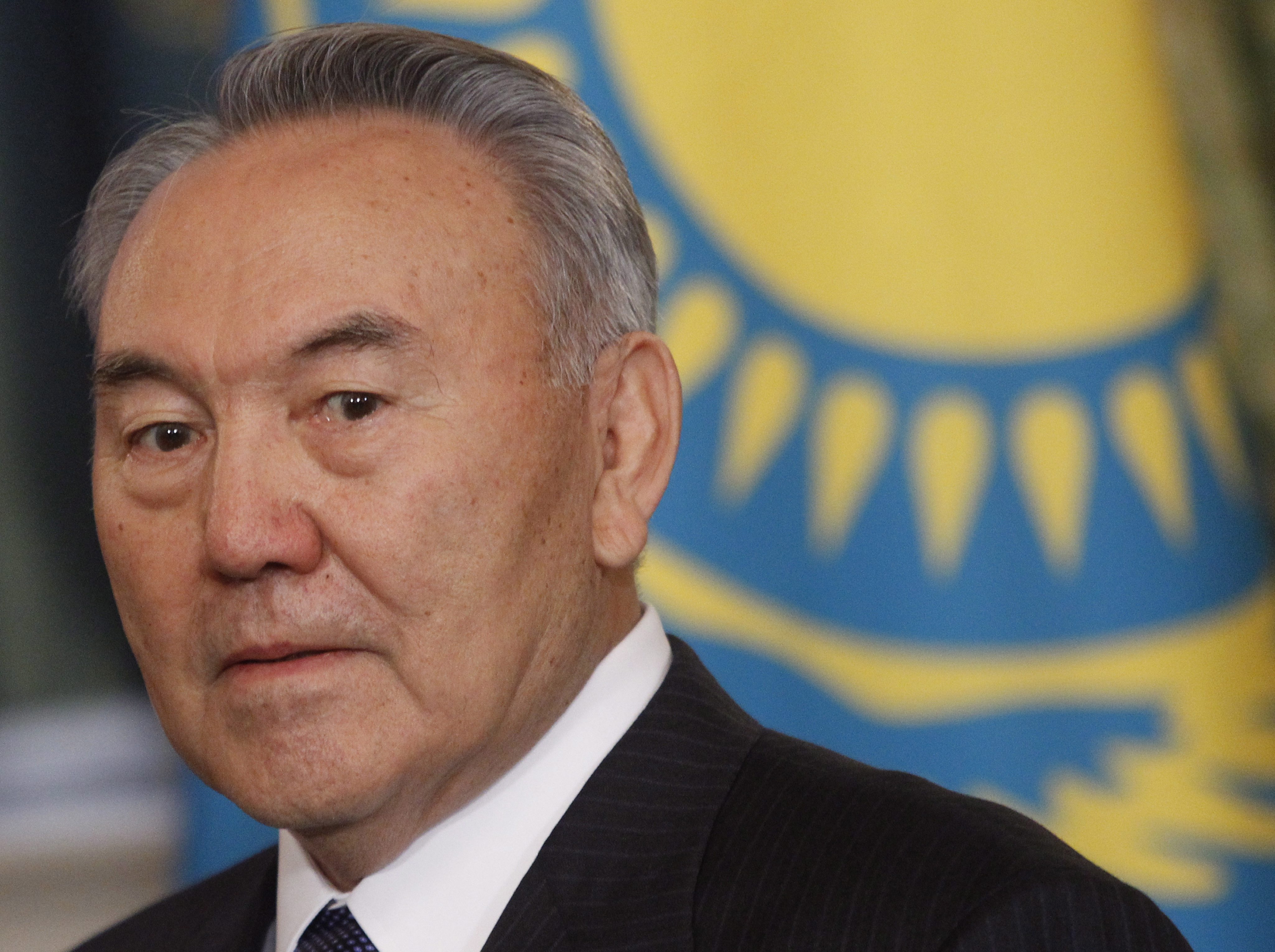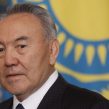
Nazarbayev Calls Snap Presidential Vote
Publication: Eurasia Daily Monitor Volume: 12 Issue: 42
By:

On February 25, Kazakhstani President Nursultan Nazarbayev made a televised address to the nation to announce an early presidential election that will take place on April 26. The head of state used his right to call an early election granted to him by article 41(3-1) of the constitution. This article had first been introduced into the country’s legislation in February 2011—two months before the last presidential election, which was also been held ahead of schedule. “Elections are the single most important constitutional and patriotic act. We must hold them in strict compliance with the law, openly and transparently, with the widest possible participation of both domestic and international observers,” he said (Newskaz.ru, Akorda.kz, February 25).
Nazarbayev’s current term is due to expire in late 2016, while his previous term was initially expected to end in December 2012. Yet, as a result of a nationwide campaign conducted by the quickly formed association “Kazakhstan 2020,” both chambers of parliament had voted in January 2011 for a joint resolution asking the president to organize a popular referendum. The referendum’s purpose would have been to extend his rule through to 2020 without a new election. The president vetoed such a proposition after a wave of criticisms in the West but had called an early election instead, following the parliament’s speedy approval of constitutional amendments that bestowing upon him the required prerogative (Lenta.ru, February 2, 2011; Inform.kz, February 1, 2015; Kursiv.kz, January 16, 2011).
Just like four years ago, the latest initiative to hold another snap election officially came from below. On February 14, 2015, the Assembly of the People of Kazakhstan, a consultative body founded in 1995 and chaired by Nazarbayev, issued a statement in which it said the current economic context marked by growing instability and the geopolitical tensions in Kazakhstan’s regional environment both spoke in favor of an early vote. “For our country to successfully navigate through the storm of a second financial crisis since 2008, we must renew Nursultan Nazarbayev’s mandate for the sake of domestic stability and national unity,” declared the Assembly. On the same day, the ruling Nur Otan party (83 out of 107 members of parliament)?also headed by the president?threw all its weight behind the Assembly of the People’s proposal, only to be joined hours later by the other two parties with parliamentary representation: the Communists (7 MPs) and Ak Zhol (8 MPs) (Tengrinews.kz, Matritca.kz, February 14).
The following week, both chambers of parliament resolved to shorten Nazarbayev term. The chairman of the senate, Kassym-Zhomart Tokayev, posed a question to the Constitutional Council regarding “the existence of any obstacles to calling an early presidential election.” And on February 25, the Council officially cleared the way for early elections by confirming the president’s unrestricted constitutional right to decide so at any time, which Nazarbayev used the next day. While Nazarbayev has yet to declare his candidacy, the upcoming extraordinary congress of Nur Otan on March 11 will most likely designate the current president as its candidate. Meanwhile, on March 4, the People’s Communist Party of Kazakhstan held its own congress, where it anointed the secretary of its central committee, Turgun Syzdykov, as the official candidate (Newskaz.ru, March 4; Forbes.kz, February 25; News.nur.kz, February 19).
During the previous presidential election in April 2011, the Communist contender, Zhambyl Akhmetbekov, won 1.36 percent of the votes, trailing just behind the chairman of the Party of Patriots, Gani Kassymov (1.94 percent). This time, Kassymov said, he will not run again. Another low-profile, self-styled politician with a potential interest in the presidential office is Mels Eleusizov, the head of the Tabigat Environmental Movement, who already ran for president in 2005 and 2011. But in both years, he ended up with the least number of votes, 0.28 and 1.15 percent, respectively. The incumbent, Nazarbayev, won both elections in a landslide: 91.15 and 95.55 percent of the votes, respectively. In all likelihood, should Nazarbayev run for reelection this time around?the most plausible scenario so far—the sitting president will once again garner close to 95 percent of all votes cast (vlast.kz, February 16; election.kz, April 5, 2011; election.kz, December 6, 2005).
As for Nazarbayev’s motivation to renew his five-year mandate, it seems to be largely driven by Kazakhstan’s worsening macroeconomic outlook for several years ahead. Though the current threat to the wider region posed by a revanchist Russia is likely also contributing to Astana’s calculus. Given the fall of the price of oil from over $100 per barrel in the first half of 2014, to around $60 in early 2015, Kazakhstani GDP is expected to grow this year at below 2 percent. It grew by 4.3 percent in 2014, and 6 percent in 2013. This somber forecast is shared by such authoritative international organizations as the World Bank and the European Bank for Reconstruction and Development (EBRD). Following last year’s rapid depreciation of the Russian ruble against the US dollar, Kazakhstan’s central bank is now believed to be preparing for another overnight devaluation of the national currency, the tenge, which the government earlier devalued by 19 percent in February 2014, and 25 percent in February 2009 (RIA Novosti, January 25; Inform.kz, January 15).
Yet, even assuming Nazarbayev’s reelection helps the country overcome the looming economic and geopolitical crises with less damage than if he were to retire in 2016, it will not answer the key question on the minds of most Kazakhstanis: Who will finally succeed the 74-year-old president? Thus far, Nazarbayev has shown no signs of imminent wishes to leave office.




